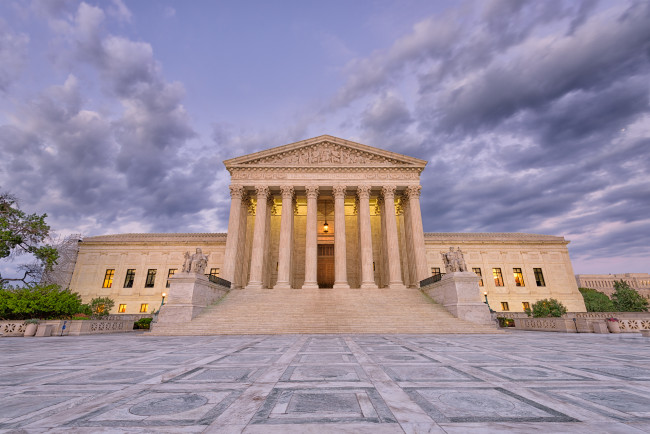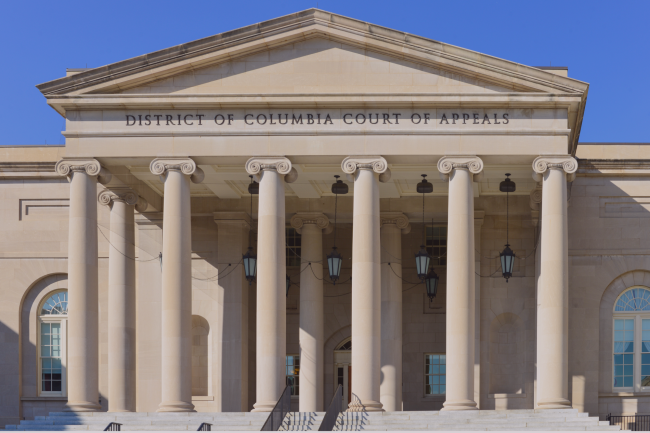-
 Read more
Read moreThe American Bar Association’s National Institute on White Collar Crime has long focused on regulating, prosecuting, and defending evolving permutations of fraud, or allegedly fraudulent conduct. At the 39th annual event, held March 6-8 in San Francisco, a new focus was on how various agencies intend to regulate artificial intelligence (“AI”) in the white collar arena. Some announcements were new to the conference, while others repeated agency guidance issued in recent months. Taken together, the announcements confirm that regulators are unified in their concern that left unchecked, AI could amplify financial crimes and their determination to nip that threat in the bud.
-
The Race to Report: Regulators Announce New Whistleblower Programs Aimed at Increasing Voluntary Self-Disclosure from Companies
| Leila Bijan and Mark J. Feaster
 Read more
Read moreTelling on yourself is not an intuitive defense. But federal regulators and prosecutors at last week’s ABA National Institute on White Collar Crime urged companies and executives to consider doing so or risk being beat to the punch by employees and competitors. With their announcements of new whistleblower policies, the Department of Justice and the United States Attorney’s Office for the Northern District of California have intensified an already tough decision facing a company that becomes aware of misconduct: whether to voluntarily disclose to regulators.
-
 Read more
Read moreIn federal court, “not guilty” doesn’t always mean no punishment. Under a quirk of federal sentencing law, judges are permitted to consider at sentencing anything that they consider relevant, including conduct for which a jury has explicitly found the defendant not guilty.1 In the 1997 Supreme Court case United States v. Watts, a majority of the Justices explained the perverse logic behind this practice. While a defendant may be convicted only of crimes proven beyond a reasonable doubt, he may be sentenced based on facts established by the lower “preponderance of the evidence” standard.2 In other words, if the jury acquits the defendant on one count but convicts on at least one other, the judge can increase the sentence on the basis of the acquitted conduct so long as the judge concludes that conduct probably occurred.
-
 Read more
Read moreAt Tuesday’s oral argument in Corner Post, Inc. v. Board of Governors of the Federal Reserve System, Justice Kagan asked the government’s counsel whether there is “any interaction” between the statute of limitations question in that case and the Court’s consideration of whether to abandon Chevron deference in two cases argued a month earlier.1 The Assistant to the Solicitor General responded cautiously that “a decision for Petitioner here would magnify the effect of any other decisions changing the way that this Court or other courts have approached administrative law questions,” because it could mean retroactively applying new standards to administrative agency actions taken decades earlier.2 The decision in Corner Post could be hugely consequential if the Supreme Court recasts or rejects Chevron, because many regulations that were upheld under a deferential standard would be fair game for renewed challenges under a new and likely more rigorous standard of review.
-
 Read more
Read moreThe Constitution requires judicial independence in Article III. As Hamilton observed in “Federalist 78”: “The standard of good behavior for the continuance in office of the judicial magistracy . . . . is the best expedient which can be devised in any government, to secure a steady, upright, and impartial administration of the laws.
So why would conferring independence on officials within the executive branch whose sole responsibility is to adjudicate disputes between an agency’s enforcement arm and a private party infringe on the President’s duty to take care that the laws are faithfully executed? In SEC v. Jarkesy, targets of SEC enforcement, supported by a long list of amici, argue that they have a constitutional right to administrative enforcement proceedings before officers who are directly removable by the President under the Take Care Clause. This post considers whether absolute removal power by the President would in fact ensure that the laws are more faithfully executed, rather than allowing administrative law judges (ALJs) with removal protections to adjudicate disputes like Article III judges do. -
 Read more
Read moreIn honor of Black History Month, InsightZS editor John Connolly posted a longform article on his personal website titled Why Maryland Did Not Ratify the Fourteenth Amendment (Until 1959). The article discusses the technical and racial objections to the proposed amendment asserted by Maryland’s reactionary leadership in the aftermath of the Civil War. The stated objections focused mostly on the more obscure sections of the amendment, including section 2, which would penalize Maryland if it did not adopt “manhood suffrage” (essentially, allowing Black men to vote), and section 4, which prohibited the federal and state governments from paying “any claim for the loss or emancipation of any slave.” Ninety-one years later, Maryland’s first Black state senators convinced the General Assembly to ratify the Fourteenth Amendment, which by then had long been accepted in Maryland and elsewhere as the law of the land. To view the full article, please visit here.
-
 Read more
Read moreA previous post examined interpretations of the statutory term “corruptly” in case law arising from prosecutions of participants in the January 6, 2021 Capitol riot. A significant new case from the D.C. Circuit, United States v. Robertson, 86 F.4th 335 (D.C. Cir. 2023), clarifies the meaning of “corruptly” in the January 6 context and offers further considerations for attorneys handling cases under the myriad white collar crime statutes that also cover conduct that is undertaken “corruptly.”
-
 Read more
Read moreWhen public officials block commenters from their social media pages, are they acting “under color of” state law for purposes of 42 U.S.C. § 1983? Yesterday, October 31, 2023, the Supreme Court heard oral arguments in two cases, Lindke v. Freed and O’Connor-Ratcliff v. Garnier, asking the Court to resolve a circuit split on this issue. The United States filed briefs as amicus curiae and participated in oral argument on behalf of the government officials in both cases.
-
 Read more
Read moreOn September 7 the District of Columbia Court of Appeals reached an important issue about the D.C. Anti-SLAPP Act that it had reserved a few months earlier.1 In Banks v. Hoffman,2 the Court held “the discovery-limiting aspects of the D.C. Anti-SLAPP Act’s special-motion-to-dismiss procedure conflict with FRCP 56” and were therefore invalid as an effort to alter the requirement of D.C. Code § 11-946, that the Superior Court “conduct its business according to the Federal Rules of Civil Procedure … unless it prescribes or adopts rules which modify those Rules."3 The Home Rule Act provides that “[t]he Council shall have no authority to . . . [e]nact any act, resolution, or rule with respect to any provision of Title 11 (relating to organization and jurisdiction of the District of Columbia Courts).” Because the Superior Court had not adopted a rule with the approval of the Court of Appeals that modifies Fed. R. Civ. P. 56, the Court invalidated the discovery limitations in the Anti-SLAPP Act.
-
 Read more
Read moreZuckerman Spaeder partner John J. Connolly posted an article called The Conscious Uncoupling of the Maryland and Federal Constitutions.
For more than 100 years, scores of Maryland decisions have suggested that state constitutional rights should be interpreted “in pari materia” with comparable rights in the U.S. Constitution. Although the rule has never been absolute, recent decisions suggest its force may be waning. This article looks at the recent decisions and discusses whether they represent a new direction for Maryland constitutional law.
As the regulatory and business environments in which our clients operate grow increasingly complex, we identify and offer perspectives on significant legal developments affecting businesses, organizations, and individuals. Each post aims to address timely issues and trends by evaluating impactful decisions, sharing observations of key enforcement changes, or distilling best practices drawn from experience. InsightZS also features personal interest pieces about the impact of our legal work in our communities and about associate life at Zuckerman Spaeder.
Information provided on InsightZS should not be considered legal advice and expressed views are those of the authors alone. Readers should seek specific legal guidance before acting in any particular circumstance.
Contributing Editors

John J. Connolly
Partner
Email | +1 410.949.1149

Andrew N. Goldfarb
Partner
Email | +1 202.778.1822

Sara Alpert Lawson
Partner
Email | +1 410.949.1181

Nicholas M. DiCarlo
Associate
Email | +1 202.778.1835




